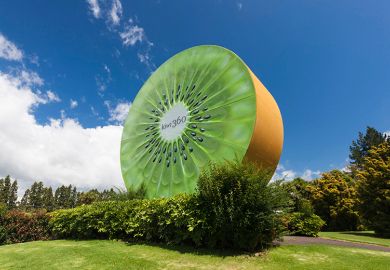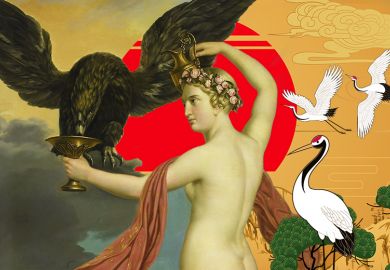When we talk about Manchester, we use catchily portmanteau terms: Cottonopolis, Madchester, Gunchester and Stuart Maconie’s coinage, “mills and bhuna”. This terrific book deals with the ways in which all these topics have an impact on the metropolis’ literary production. Indeed, the only key feature of the city not discussed here (much to my relief, after all the coverage of Sir Alex Ferguson’s autobiography) is its arch-rival football teams.
Throughout, the authors keep an appropriately sharp eye on the issues of race, class and London-centrism that engulf Mancunian publishing. They create their own living archive through an accompanying e-catalogue, perceptive readings of the texts, and photographs, interviews and focus groups with some of the city’s leading cultural players. Participants include Peter Kalu from Commonword and Ra Page of Comma Press, as well as writers such as Lemn Sissay, Joe Pemberton, Shamshad Khan and Qaisra Shahraz.
The city’s 19th-century role as producer and aggressive imperialist exporter of cotton led Mahatma Gandhi to decry “the harm that Manchester has done to us” in India. However, Lancashire’s abolitionist, suffragette, working-class and anti-racist histories are also remembered and analysed in this admirably comprehensive study.
Then there is the swagger of the city’s pop culture, cool long before the rest of Britannia cottoned on: Joy Division, New Order, The Smiths, Happy Mondays, The Stone Roses and The Haçienda are just a few of the artists and clubs that, as the tourism slogan puts it, make this conurbation “uniquely Manchester”. In the chapter “Rebels without applause”, Corinne Fowler links the city’s vibrant popular music with its performance poetry scene, exploring creative collaborations that go beyond race, genre and region, such as those between Londoner Linton Kwesi Johnson and Manchester’s “punk poet” John Cooper Clarke, and between comedian/poet Henry Normal and poet for page and stage SuAndi.
In the 1990s, violent crime in districts such as Moss Side was so widespread that the tabloids dubbed the area “Gunchester”. Yet even these apparently mean streets are spaces of neighbourliness and belonging, as the chapter on Manchester’s black crime fiction shows.
Although the book is excellent on the “mills”, it is less strong on the “bhuna”, namely Manchester’s longstanding South Asian presence. Rusholme’s “Curry Mile” appears here as an add-on to Moss Side, and the area and its chroniclers such as Zahid Hussain are not explored in the same depth as Afro-Caribbean districts, genres and authors.
Despite such imbalances (gender is also insufficiently discussed), Postcolonial Manchester succeeds in being more than the sum of its parts as the authors bring complementary perspectives to bear on an endlessly fascinating city. Lynne Pearce is a professor of literary theory, Fowler an early career academic and creative writer, and Robert Crawshaw’s uneven chapter puts forward the “writers’ perspective”. The book comes out of the four-year Moving Manchester project, so it also benefits from input by clearly exceptional postgraduates (including Sarah Post and the “Bradford 12” author Tariq Mehmood). The Arts and Humanities Research Council should be congratulated on funding this complex yet accessible work, which offers refreshingly self-critical, impassioned, wide-ranging, original research.
Far too often, London is still viewed as the byword for cosmopolitanism, while other English cities such as Manchester, Birmingham and my own beautiful, diverse Leeds are seen as parochial. For a character in Hanif Kureishi’s novella Gabriel’s Gift (and probably Kureishi himself), the world outside London “was a wasteland of rednecks and fools, living in squalor and poverty”. While the North certainly has its share of poverty, this volume efficiently demolishes the other stereotypes.
Yet, as the authors assert, “while Manchester arguably has as great a claim as London to the tag ‘postcolonial city’ the latter has achieved a kudos and a marketability that Manchester has not”. The idea of a devolved literary culture is therefore crucial: a federalist community of northern authors, publishers and critics bypassing the capital altogether. James Procter coined the term “devolved cultural geography” in his 2003 monograph Dwelling Places: Postwar Black British Writing, arguing that “it is [not] the same to be black in London as it is in Llandudno”. These authors develop Procter’s point into a call to arms. Excuse me, learned colleagues across the Pennines, as your book inspires me to turn away and begin my own devolved work on Muslim writing in Yorkshire, entitled Allah’s Own Country…
Postcolonial Manchester: Diaspora Space and the Devolution of Literary Culture
By Lynne Pearce, Corinne Fowler and Robert Crawshaw
Manchester University Press, 304pp, £60.00
ISBN 9780719088155
Published 30 November 2013
Register to continue
Why register?
- Registration is free and only takes a moment
- Once registered, you can read 3 articles a month
- Sign up for our newsletter
Subscribe
Or subscribe for unlimited access to:
- Unlimited access to news, views, insights & reviews
- Digital editions
- Digital access to THE’s university and college rankings analysis
Already registered or a current subscriber? Login





